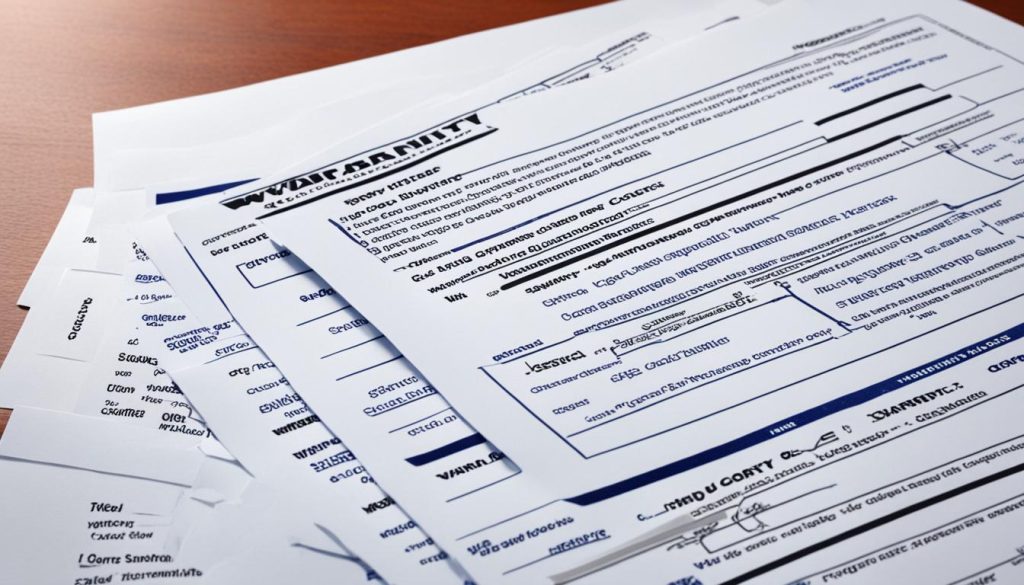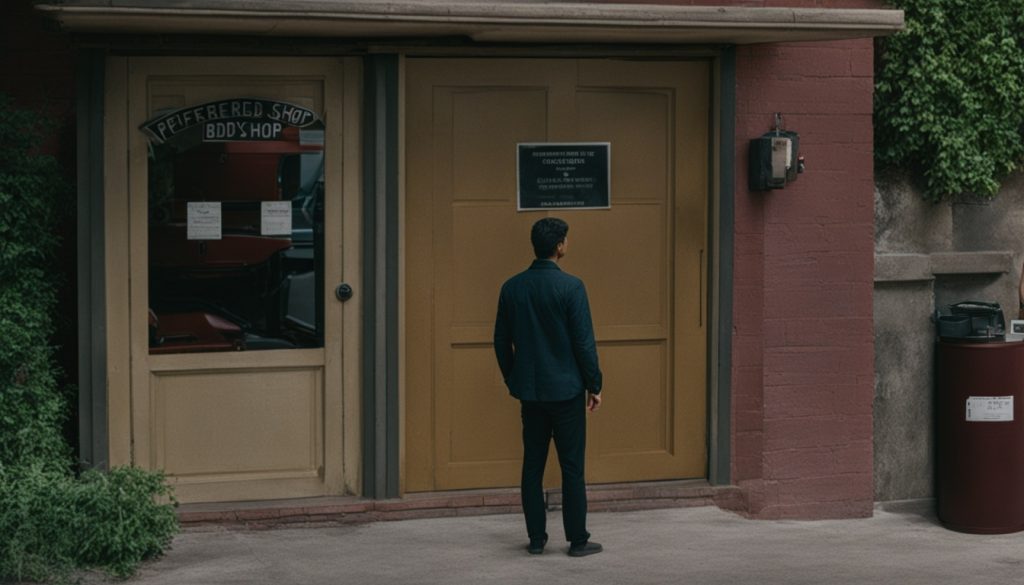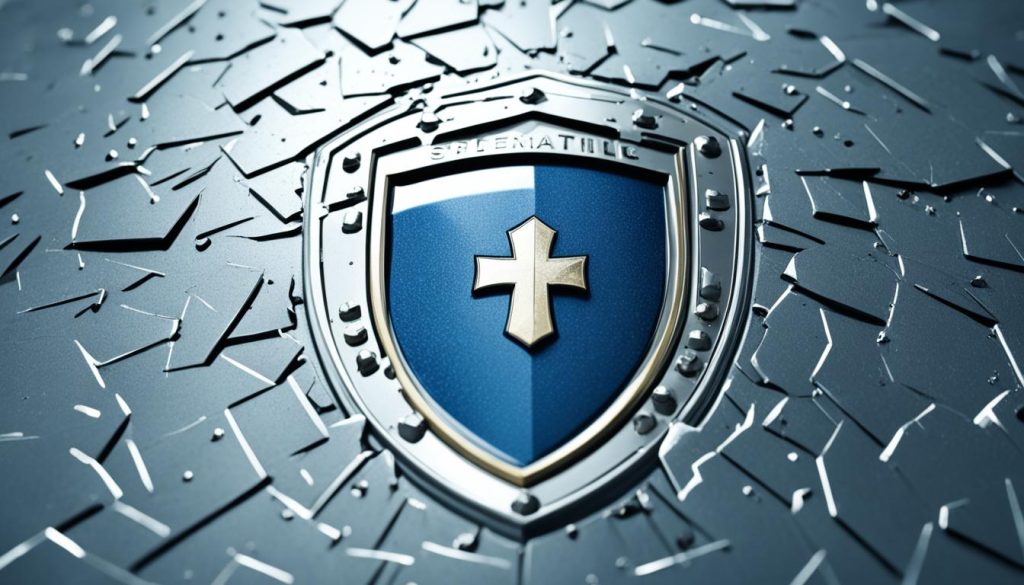Car insurance is a crucial aspect of owning and driving a vehicle. It provides financial protection in case of accidents, theft, or damage to your car and others involved. Understanding the basics of car insurance is essential to ensure you have adequate coverage and are well-prepared for any unfortunate events on the road. Let’s dive into the various aspects of car insurance and the different types of coverage available to you.
Understanding the Basics of Car Insurance
The Importance of Car Insurance
Car insurance is more than just a legal requirement in most places; it is a safeguard that protects you from potential financial burdens. Accidents can happen to even the most careful drivers, and without insurance, you could be left with hefty repair bills, medical expenses, or even lawsuits.
Imagine you’re driving on a quiet road, enjoying the scenery when suddenly, another driver runs a red light and crashes into your car. The impact is jarring, and your vehicle is badly damaged. Without car insurance, you would have to bear the full cost of repairs, which can be a significant financial blow. Additionally, if the other driver is injured, you could be held liable for their medical expenses and legal fees.
Car insurance acts as a safety net, providing you with the necessary financial protection to navigate through such situations. It offers peace of mind, knowing that if an unfortunate incident occurs, you won’t be left to shoulder the burden alone.
Read more: How Car Insurance Works
Different Types of Car Insurance
Car insurance policies typically consist of several types of coverage. Each type serves a unique purpose and can be tailored to meet your specific needs. It’s crucial to understand these components before selecting a policy:
- What Does Car Insurance Cover?
- Comprehensive Coverage: This coverage protects your vehicle from non-collision incidents, such as theft, vandalism, or natural disasters.
- Collision Coverage: Collision coverage provides financial protection for repairs or replacement of your vehicle if it is damaged in an accident.
- Liability Coverage: Liability coverage is required in most places and pays for damages caused to other people’s property or injuries you cause to someone else in an accident.
- Uninsured and Underinsured Motorist Coverage: These coverages protect you in case of accidents involving drivers who don’t have insurance or carry insufficient coverage.
- Personal Injury Protection (PIP) and Medical Payments Coverage: PIP and medical payments coverage help cover medical expenses for you and your passengers, regardless of who is at fault in an accident.
- Extras: Additional coverage options like roadside assistance and rental reimbursement can be added to your policy for added convenience and peace of mind.
Now that we have covered the basics, let’s take a closer look at each type of coverage and its specific features.
Comprehensive coverage goes beyond accidents and protects your vehicle from various non-collision incidents. Suppose you wake up one morning to find your car missing from your driveway. With comprehensive coverage, you can file a claim and receive compensation for the stolen vehicle, helping you recover from the unfortunate event.
Collision coverage, on the other hand, focuses specifically on accidents involving your vehicle. Whether you collide with another vehicle, a stationary object, or even a pothole, collision coverage ensures that the necessary repairs or replacement costs are taken care of, minimizing your financial burden.
Liability coverage is a fundamental component of any car insurance policy. It provides financial protection in case you cause damage to someone else’s property or injure another person in an accident. For example, if you accidentally rear-end another car, liability coverage will cover the cost of repairing the other vehicle.
Uninsured and underinsured motorist coverage is essential because not all drivers on the road have insurance or carry sufficient coverage. If you are involved in an accident with an uninsured or underinsured driver, this coverage will step in and cover the costs that the other driver cannot pay.
Personal Injury Protection (PIP) and Medical Payments Coverage are designed to cover medical expenses resulting from an accident, regardless of who is at fault. Whether it’s emergency room visits, surgeries, or rehabilitation, these coverages ensure that you and your passengers receive the necessary medical care without worrying about the financial implications.
Lastly, car insurance policies often offer additional extras that can be added to your policy for added convenience and peace of mind. Roadside assistance, for example, can come to your rescue if you experience a flat tire or run out of fuel while on the road. Rental reimbursement coverage can help you cover the cost of a rental car while your vehicle is being repaired after an accident.
Understanding the different types of car insurance coverage allows you to make informed decisions when selecting a policy that suits your needs. By tailoring your coverage to your specific circumstances, you can ensure that you are adequately protected in any situation. (For more information, read our “The Different Types of Car Insurance Coverage“).
Compare Quotes From Top Companies and Save
Secured with SHA-256 Encryption
Comprehensive Coverage Explained
When it comes to protecting your vehicle, comprehensive coverage is an essential component of any insurance policy. This type of coverage goes beyond just protecting you from collision-related risks. It provides a safety net for a wide range of unfortunate events that can occur, giving you peace of mind in knowing that you are financially protected.
What Comprehensive Coverage Includes
Comprehensive coverage is designed to safeguard your vehicle from various risks that are not related to collision. These risks can include theft, vandalism, fire, hail, flooding, or damage caused by animals. Imagine the scenario of waking up one morning to find your car has been stolen or vandalized. With comprehensive coverage, you can rest assured that your insurance will cover the repair or replacement costs, up to the policy’s limit.
Let’s delve deeper into some of the risks that comprehensive coverage protects you from:
Theft: Unfortunately, car theft is a common occurrence in many areas. Comprehensive coverage ensures that if your vehicle is stolen, you won’t be left shouldering the financial burden alone.
Vandalism: Acts of vandalism can range from minor scratches to more severe damage. With comprehensive coverage, you can have peace of mind knowing that your insurance will help cover the costs of repairing the damage caused by vandals.
Fire: Fires can be devastating, and they can occur unexpectedly. Whether it’s due to an electrical malfunction or an accident, comprehensive coverage will provide the necessary financial support to repair or replace your vehicle if it is damaged by fire. (For more information, read our “Are electrical fires covered by car insurance?“).
Hail: Living in an area prone to hailstorms can be stressful, especially when it comes to protecting your vehicle. Comprehensive coverage offers you financial protection in case your car suffers damage from hailstones, which can range from small dents to shattered windshields.
Flooding: Natural disasters, such as floods, can wreak havoc on your vehicle. Comprehensive coverage ensures that if your car is damaged by flooding, you won’t have to bear the burden of repair or replacement costs alone.
Damage caused by animals: Animals can cause unexpected damage to your vehicle, whether it’s a deer collision or a curious raccoon causing havoc. Comprehensive coverage provides the necessary financial support to repair or replace your vehicle in such situations.
Limitations of Comprehensive Coverage
While comprehensive coverage offers extensive protection, it’s important to understand its limitations to set realistic expectations for your coverage.
Deductible: Most comprehensive coverage policies include a deductible. A deductible is the amount you must pay out of pocket before your insurance coverage kicks in. It’s crucial to be aware of your deductible amount and factor it into your financial planning.
Regular wear and tear: Comprehensive coverage does not cover regular wear and tear on your vehicle. This means that expenses related to maintenance, such as replacing worn-out tires or fixing mechanical issues, are not covered by comprehensive coverage. (For more information, read our “Car Maintenance Expenses“).
Mechanical breakdowns: If your vehicle experiences a mechanical breakdown, comprehensive coverage will not cover the repair costs. Mechanical breakdowns fall under the realm of warranty coverage or specialized mechanical breakdown insurance.
Contents inside your vehicle: It’s important to note that comprehensive coverage does not extend to the contents inside your vehicle. If personal belongings are stolen or damaged, you may need additional coverage, such as renter’s insurance or homeowner’s insurance, to protect your belongings.
By understanding these limitations, you can make informed decisions about your coverage and ensure that you have the appropriate insurance policies in place to protect all aspects of your vehicle and personal belongings.
Collision Coverage Demystified
Understanding collision coverage is essential for every vehicle owner. This type of insurance kicks in when your vehicle collides with another vehicle, object, or if it rolls over. It provides financial protection in case of significant damage that may cost more to repair than the value of the vehicle itself.
What Collision Coverage Protects
Collision coverage ensures that your own vehicle is taken care of, regardless of who is at fault in the accident. It covers the cost to repair or replace your vehicle, up to the policy’s limit. This means that even if the other driver does not have insurance or is underinsured, you can rest assured that your vehicle will be repaired or replaced.
Imagine a scenario where you are driving down the road and suddenly, another car veers into your lane, causing a collision. Without collision coverage, you would be left to bear the financial burden of repairing or replacing your vehicle. However, with collision coverage, you can breathe a sigh of relief knowing that your insurance company will take care of the expenses.
When Collision Coverage Comes Into Play
Collision coverage is particularly useful if you have a newer or valuable vehicle. As we all know, accidents happen, and the cost of repairing a vehicle can be astronomical. In some cases, the repair costs may even exceed the value of the car. This is where collision coverage proves its worth.
Before purchasing collision coverage, it’s important to consider various factors. Firstly, evaluate the age and value of your car. If you have an older vehicle with a low market value, collision coverage may not be necessary. However, if you own a brand-new car or a high-value vehicle, collision coverage can provide you with peace of mind.
Additionally, consider your budget and willingness to take risks. Collision coverage comes at a cost, and you need to determine if it fits within your financial means. Assessing your risk tolerance is also crucial. If you are risk-averse and want to protect your investment, collision coverage is a wise choice.
Furthermore, collision coverage can be beneficial even if you are not at fault in an accident. While the other driver’s insurance should cover the damages, there may be instances where the responsible party does not have insurance or is underinsured. In such cases, collision coverage ensures that you are not left empty-handed.
In conclusion, collision coverage is an essential component of any comprehensive auto insurance policy. It provides the necessary financial protection to repair or replace your vehicle in case of a collision. By understanding the benefits and considering your specific circumstances, you can make an informed decision about whether collision coverage is right for you.
Liability Coverage: What You Need to Know
Bodily Injury Liability
Bodily injury liability coverage pays for medical expenses, pain and suffering, and lost wages for others involved in an accident where you are at fault. It helps protect your assets and savings by preventing expensive lawsuits and paying for the injured party’s needs. Liability coverage is essential, as medical expenses can quickly accumulate.
Read more: Bodily Injury Liability Insurance Coverage
Property Damage Liability
Property damage liability coverage covers the cost of repairing or replacing someone else’s property damaged in an accident you are at fault for. It can include damage to another person’s vehicle, home, mailbox, or any other property affected by the accident. Property damage liability coverage is crucial to safeguard your finances and assets, as repair costs can be substantial.
Compare Quotes From Top Companies and Save
Secured with SHA-256 Encryption
Uninsured and Underinsured Motorist Coverage
Protecting Yourself from Uninsured Drivers
Uninsured motorist coverage steps in if you are involved in an accident caused by a driver who doesn’t have insurance. It covers your medical expenses and damage to your vehicle, up to the policy’s limit. Unfortunately, there are many drivers on the road without insurance, making uninsured motorist coverage an important addition to your policy.
The Role of Underinsured Motorist Coverage
Underinsured motorist coverage safeguards you in situations where the at-fault driver does not have sufficient insurance to cover all the damages you and your passengers have sustained. This coverage helps bridge the gap between what the underinsured driver’s insurance covers and the actual costs of the accident. Underinsured motorist coverage is crucial to ensure you are not left with significant financial burdens.
Personal Injury Protection (PIP) and Medical Payments Coverage
Understanding Personal Injury Protection
Personal injury protection, commonly known as PIP, is a no-fault coverage that pays for your medical expenses, lost wages, and other related costs, regardless of who is at fault in the accident. PIP coverage is particularly useful in states with no-fault insurance systems, as it ensures you receive prompt medical treatment without being delayed by legal proceedings.
The Importance of Medical Payments Coverage
Medical payments coverage, also known as MedPay, pays for medical expenses for you and your passengers, regardless of fault. It acts as a supplement to your health insurance and helps cover expenses like ambulance fees, hospital visits, surgeries, and rehabilitation. Medical payments coverage is often available in smaller limits compared to PIP, but it can still provide crucial financial support in times of need.
Extras: Roadside Assistance and Rental Reimbursement
The Benefits of Roadside Assistance
Roadside assistance is an optional coverage that provides help in case of breakdowns, flat tires, dead batteries, or running out of fuel. Having roadside assistance can save you from stressful situations, especially if you travel frequently or have an older vehicle. Services may include towing, jump-starting a battery, delivering fuel, or helping with a flat tire. Roadside assistance offers peace of mind, knowing that help is just a phone call away.
How Rental Reimbursement Works
Rental reimbursement coverage helps cover the cost of renting a vehicle while your car is being repaired due to a covered accident. It provides financial support during the time you are unable to use your vehicle, ensuring that your day-to-day routine is not disrupted. Rental reimbursement coverage can help you avoid the inconvenience and extra expenses that come with being without a car.
Read more: If my car breaks down, will insurance cover a rental?
Compare Quotes From Top Companies and Save
Secured with SHA-256 Encryption
How to Choose the Right Car Insurance Coverage
Assessing Your Needs and Budget
When selecting the appropriate car insurance coverage, it’s essential to consider your specific needs and budget. Evaluate factors such as the value of your vehicle, your driving habits, the importance of financial security, and any legal requirements in your area. Additionally, consider your current financial situation, taking into account your ability to pay premiums and handle potential deductibles.
Tips for Comparing Car Insurance Policies
When comparing car insurance policies, consider the coverage limits, deductibles, and premiums offered by different providers. Look for any additional benefits or discounts specific to your circumstances. Reading reviews, seeking advice from professionals, and comparing quotes from multiple companies can help you make an informed decision and find the coverage that meets your needs best.
In conclusion, car insurance covers a range of risks and provides vital financial protection in case of accidents, theft, or damage to your vehicle. Understanding the different types of coverage available, such as comprehensive, collision, liability, uninsured/underinsured motorist, personal injury protection, and extras like roadside assistance and rental reimbursement, helps ensure you have the necessary coverage to protect yourself and your assets. Assessing your needs, budget, and comparing policies from various providers are essential steps to finding the right car insurance coverage for your specific situation. Stay informed, drive safely, and enjoy the peace of mind that comes with having adequate car insurance coverage.
Frequently Asked Questions
What does car insurance cover?
Car insurance typically covers damage to your vehicle caused by accidents, theft, vandalism, and natural disasters. It may also cover medical expenses for injuries sustained in a car accident and liability for damage caused to other people’s property.
Does car insurance cover damage caused by someone else?
Yes, car insurance can cover damage caused by someone else if you have comprehensive or collision coverage. Comprehensive coverage can help pay for damage caused by vandalism, theft, or natural disasters, while collision coverage can help pay for damage caused by accidents with other vehicles or objects.
Does car insurance cover rental cars?
Some car insurance policies may provide coverage for rental cars, but it depends on your specific policy. It’s important to check with your insurance provider to understand if rental car coverage is included and what the limitations or requirements may be.
Will car insurance cover a hit-and-run accident?
If you have uninsured motorist coverage, your car insurance may cover a hit-and-run accident. Uninsured motorist coverage helps protect you if you’re involved in an accident with a driver who doesn’t have insurance or flees the scene. However, specific coverage and limits may vary depending on your policy.
What factors can affect car insurance coverage?
Several factors can affect car insurance coverage, including your driving record, age, gender, location, type of vehicle, and the coverage options you choose. Insurance providers consider these factors to assess the risk associated with insuring you and determine the cost of your premiums.
Does car insurance cover personal belongings stolen from a vehicle?
Car insurance typically does not cover personal belongings stolen from a vehicle. However, if you have homeowner’s or renter’s insurance, your belongings may be covered under those policies. It’s important to review your insurance policies or consult with your insurance provider to understand the extent of coverage for personal belongings.
Compare Quotes From Top Companies and Save
Secured with SHA-256 Encryption
Eric Stauffer
Licensed Insurance Agent
Eric Stauffer is an insurance agent and banker-turned-consumer advocate. His priority is educating individuals and families about the different types of insurance coverage. He is passionate about helping consumers find the best coverage for their budgets and personal needs.
Eric is the CEO of C Street Media, a full-service marketing firm and the co-founder of ProperCents.com, a financial educat…
Editorial Guidelines: We are a free online resource for anyone interested in learning more about car insurance. Our goal is to be an objective, third-party resource for everything car insurance related. We update our site regularly, and all content is reviewed by car insurance experts.
#car #insurance #cover










